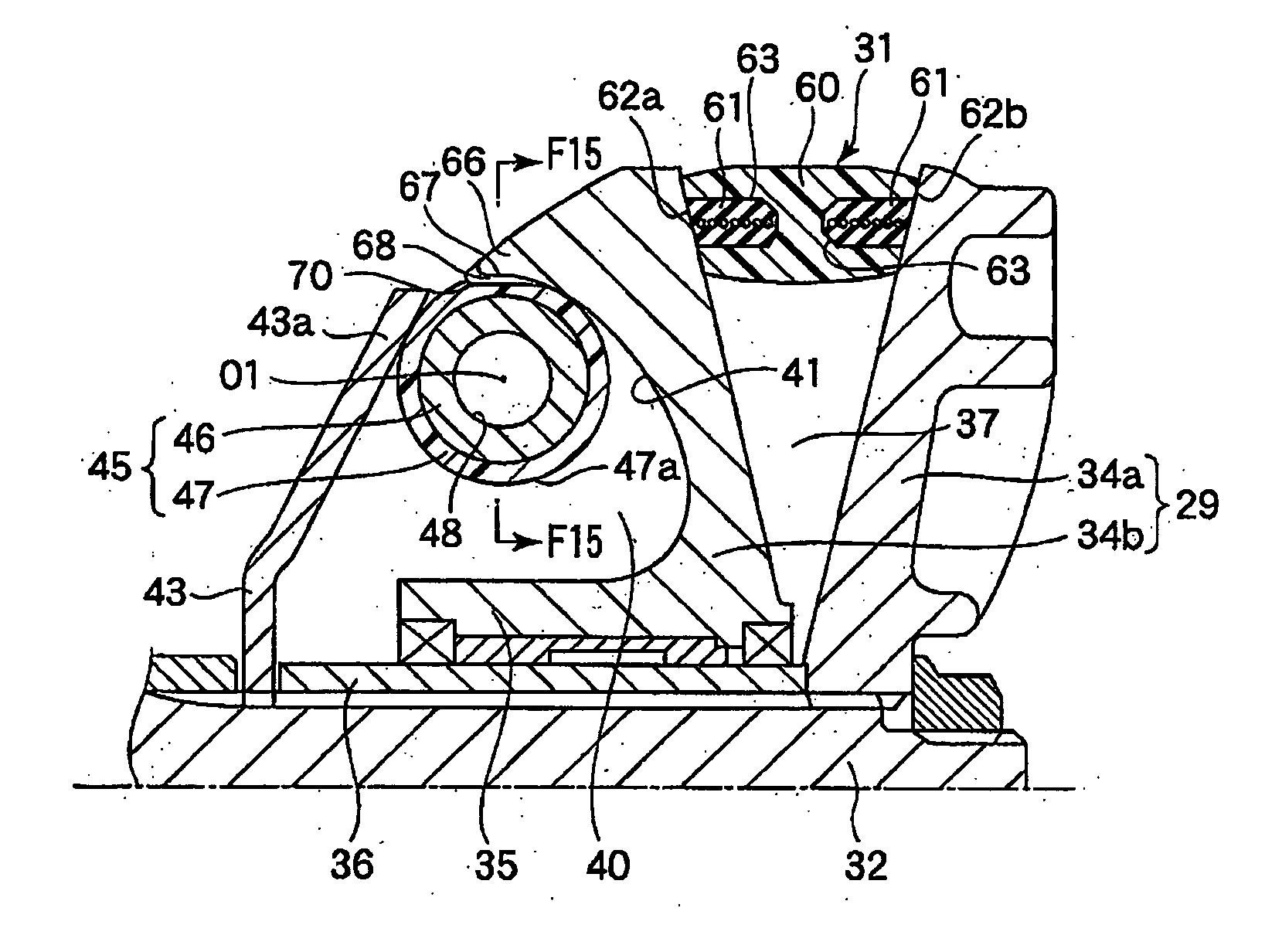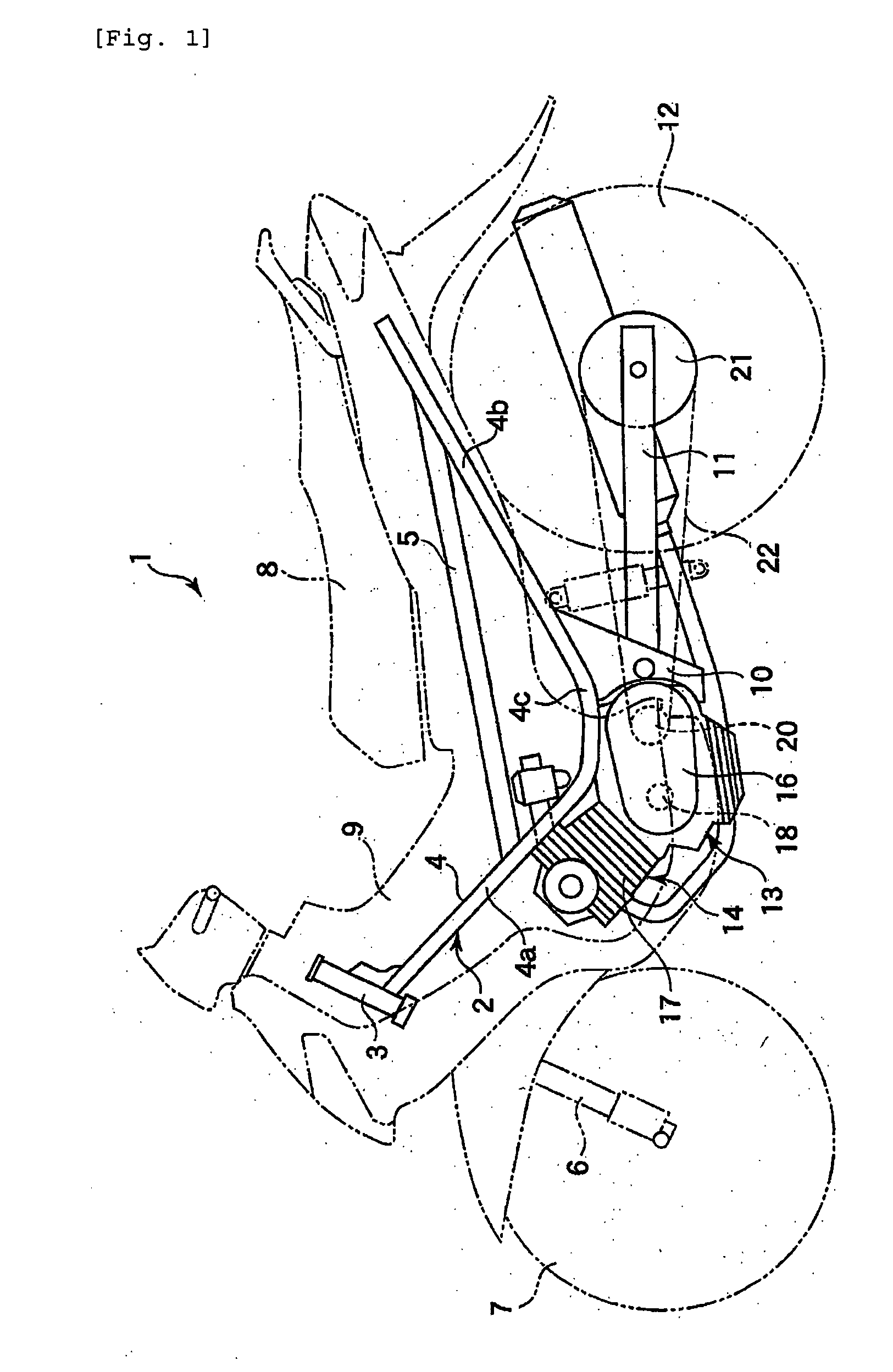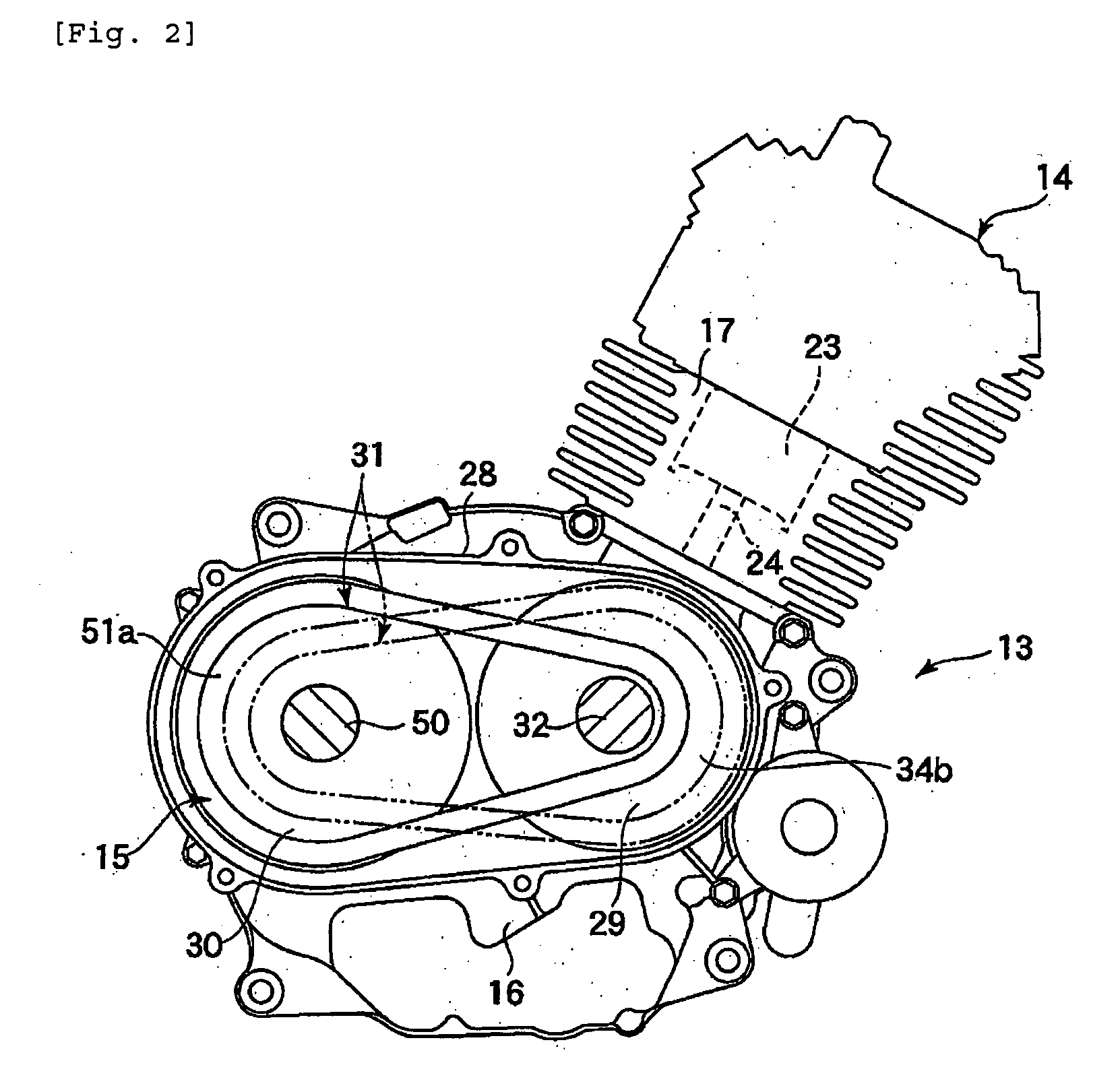Belt Type Continuous Variable Transmission, Power Unit Having He Type Continuous Varible Transmission, Vehicle Mounting Thereon The Belt Type Continuous Variable Transmission, And Sheave For Continuous Variable Transmission
a technology of transmission gear ratio and belt type, which is applied in the direction of gearing, gearing, transportation and packaging, etc., can solve the problems of not being able to achieve a predetermined minimum transmission gear ratio, not being able to avoid the outer peripheral surfaces of roller weights which contact the movable sheave body and the cam plate, etc., to suppress a change in speed ratio, reduce the transmission gear ratio, and increase the transmission gear ratio
- Summary
- Abstract
- Description
- Claims
- Application Information
AI Technical Summary
Benefits of technology
Problems solved by technology
Method used
Image
Examples
first embodiment
[0049]the invention will be described below with reference to FIGS. 1 to 16.
[0050]FIG. 1 discloses a motorcycle 1 exemplary of a vehicle according to the invention. The motorcycle 1 comprises a frame 2. The frame 2 includes a steering head pipe 3, a pair of main pipes 4 (only one of them is shown), and a pair of seat rails 5 (only one of them is shown). The steering head pipe 3 is positioned at a front end of the frame 2 and supports a front wheel 7 through a front fork 6.
[0051]The respective main pipes 4 extend rearward from the steering head pipe 3. The main pipes 4 comprise a front half 4a, a rear half 4b, and an intermediate portion 4c. The front half 4a extends obliquely downward from the steering head pipe 3. The rear half 4b extends obliquely upward from a lower end of the front half 4a. The intermediate portion 4c is positioned between the front half 4a and the rear half 4b.
[0052]The seat rail 5 bridges between the front half 4a and the rear half 4b of the main pipe 4. The ...
second embodiment
[0106]FIG. 17 shows the invention.
[0107]The second embodiment is different from the first embodiment in stoppers 66 on a second sheave body 34b. The second embodiment is the same as the first embodiment except the above. Therefore, the same constituents as those in the first embodiment are denoted by the same reference numerals as those in the latter, and an explanation therefor is omitted.
[0108]As shown in FIG. 17, a pair of projections 81, 82 are formed on a stopper surface 67 of the stopper 66. The projections 81, 82 are angular in shape to project toward the roller weight 45 from the stopper surface 67. The projections 81, 82 are separate from each other in an axial direction of the roller weight 45 and extend straight in a direction, in which the second sheave body 34b slides.
[0109]With such construction, the projections 81, 82 come into contact with outer surfaces 47a of the roller weights 45 when the second sheave body 34b has moved to a position to determine a minimum transm...
third embodiment
[0111]FIG. 18 shows the invention.
[0112]The third embodiment is different from the first embodiment in a shape of projections 91 that project from stopper surfaces 67. The third embodiment is the same as the first embodiment except the above.
[0113]As shown in FIG. 18, the projections 91 comprise an arcuately curved top 91a. The tops 91a are closest to the outer surfaces 47a of the roller weights 45. The tops 91a come into contact with the outer surfaces 47a of the roller weights 45 when the second sheave body 34b has moved to a position to determine a minimum transmission gear ratio. Such contact causes those portions of the outer surfaces 47a of the roller weights 45, which contact with the projections 91, to wear positively, and a state, in which the roller weights 45 bite into the projections 91, comes out. As a result, the roller weights 45 move radially outwardly of the second sheave body 34b. Accordingly, a change in speed ratio can be caused so as to decrease a transmission g...
PUM
 Login to View More
Login to View More Abstract
Description
Claims
Application Information
 Login to View More
Login to View More - R&D
- Intellectual Property
- Life Sciences
- Materials
- Tech Scout
- Unparalleled Data Quality
- Higher Quality Content
- 60% Fewer Hallucinations
Browse by: Latest US Patents, China's latest patents, Technical Efficacy Thesaurus, Application Domain, Technology Topic, Popular Technical Reports.
© 2025 PatSnap. All rights reserved.Legal|Privacy policy|Modern Slavery Act Transparency Statement|Sitemap|About US| Contact US: help@patsnap.com



